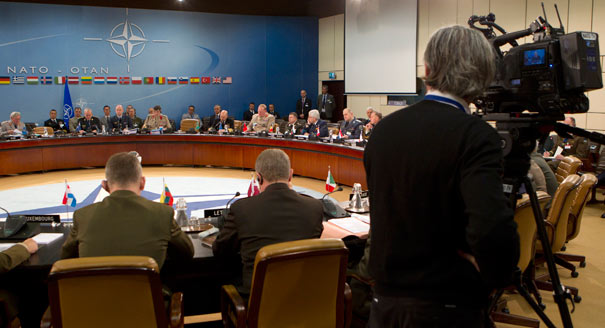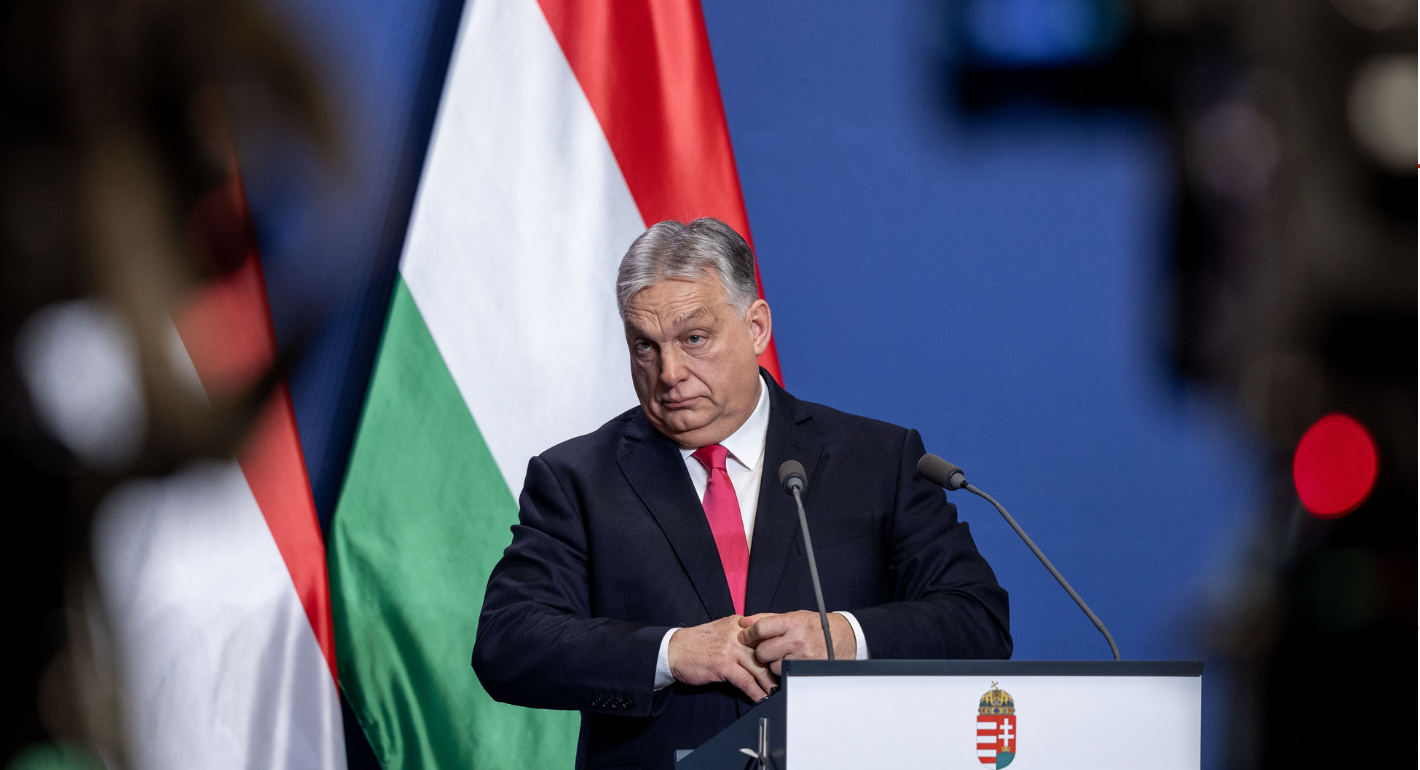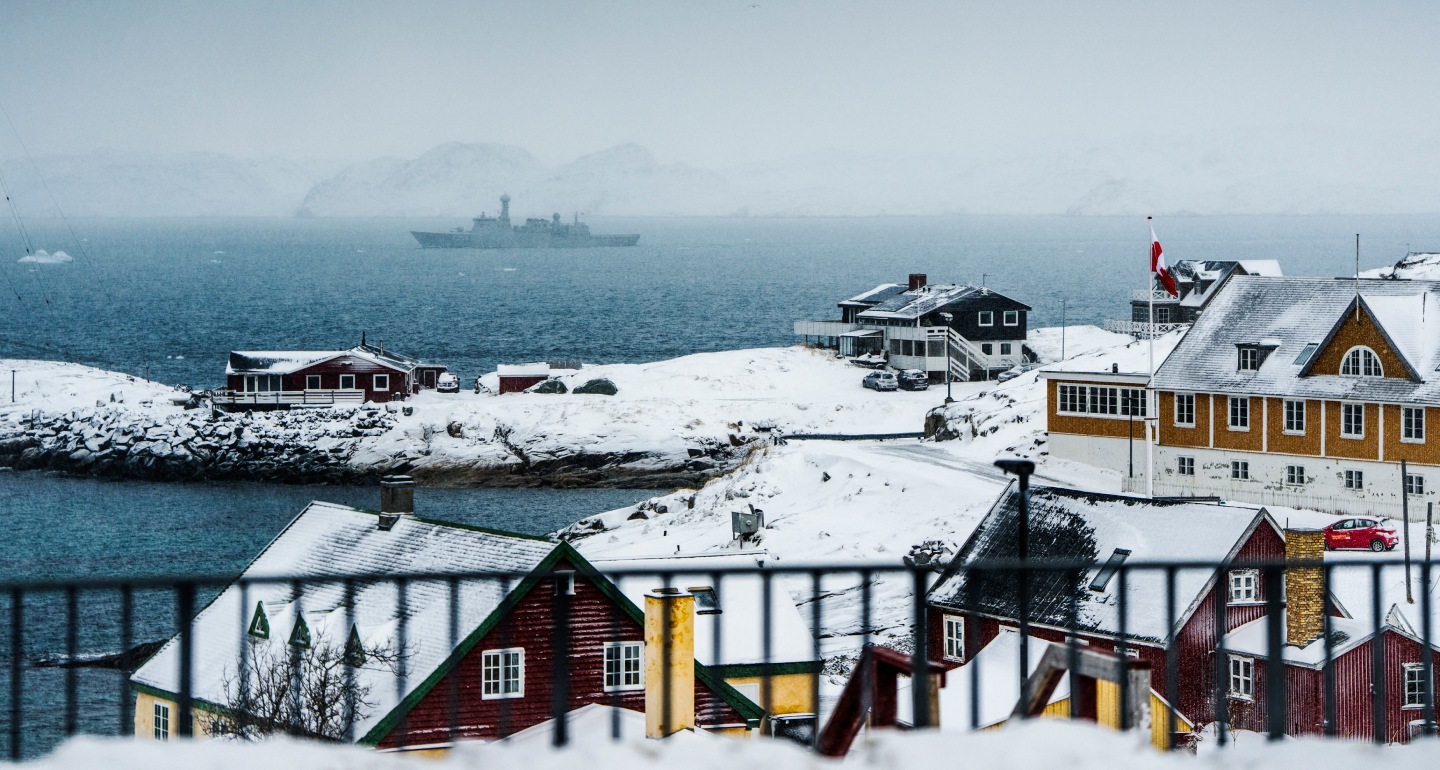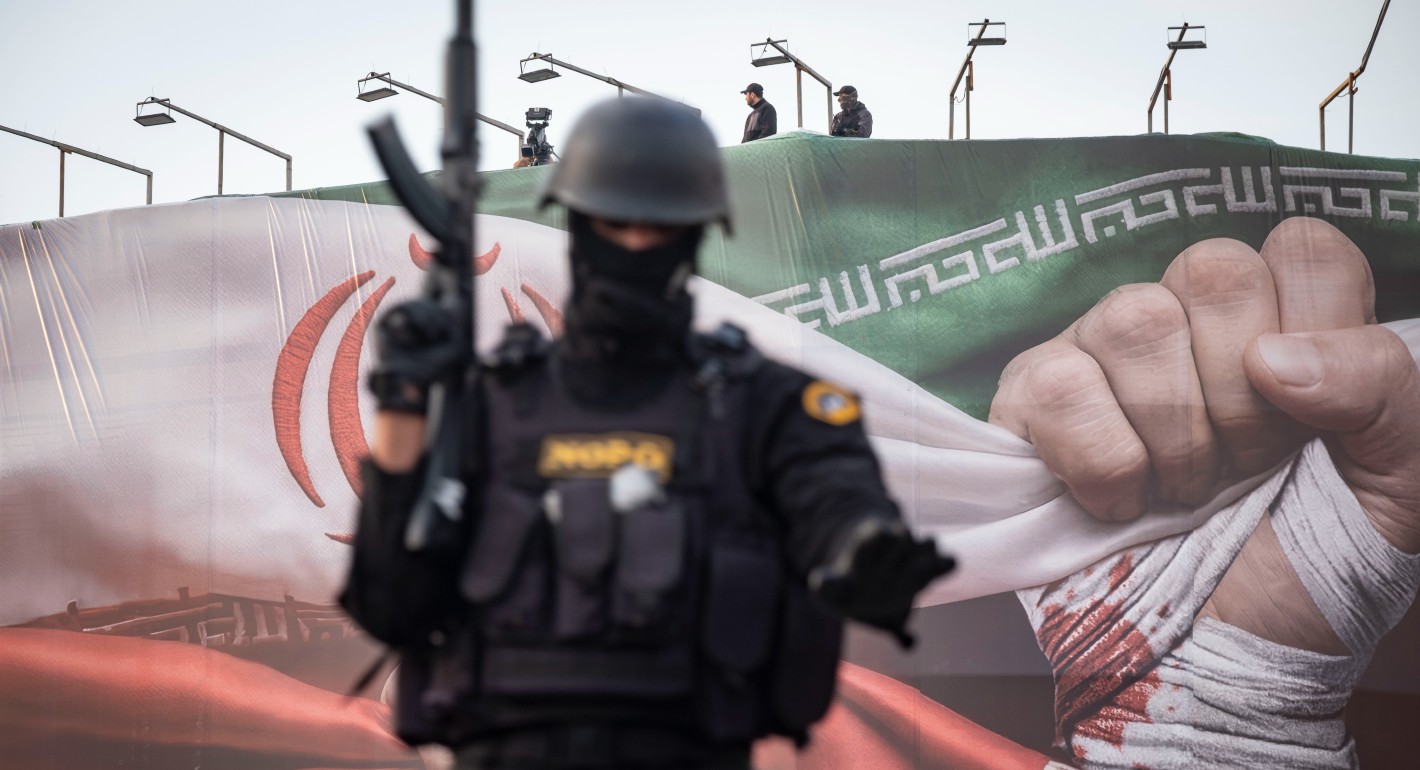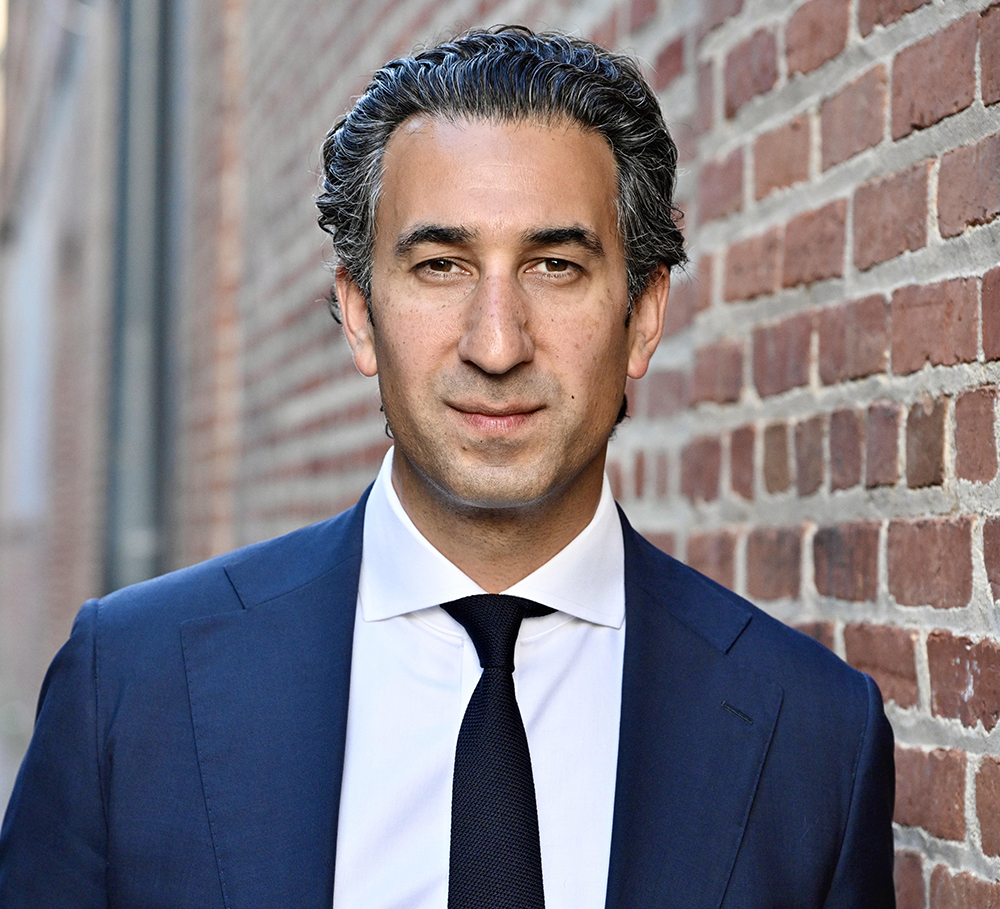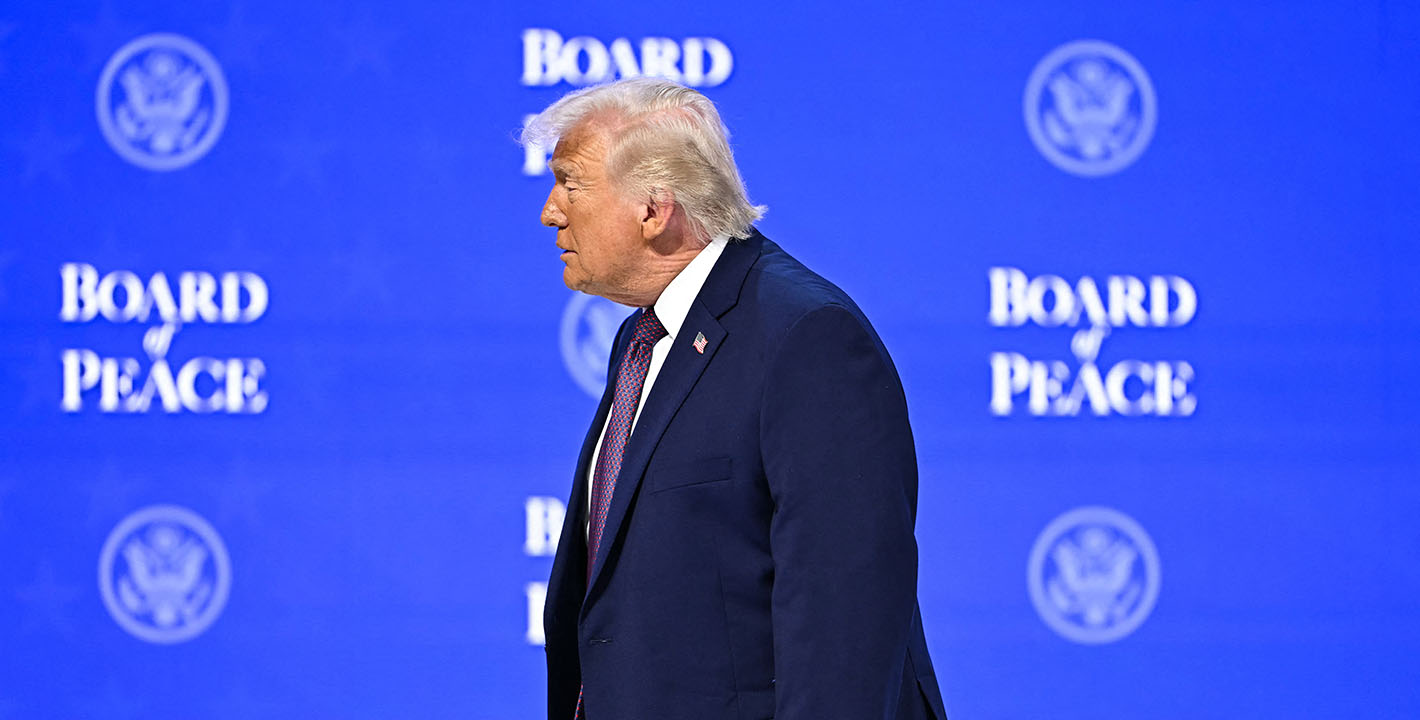With Asia rising and the West still confronting crises, power is diffusing and the world is becoming ever more complex. This shifting landscape presents decisionmakers across the globe with increased uncertainty. Meanwhile, the need for financial austerity confronts governments with the dilemma of providing for their countries’ security without overspending. Amid enduring expectations that living conditions will continue to improve and social welfare will increase, a government’s ability to wisely economize security expenditure is becoming key to its success and popular support. For some states, smarter defense spending in the face of mounting security challenges may even turn out to be necessary to survive.
One way to reasonably scale down defense and security budgets is to form a security community. A security community is a group of states that refrain from counterbalancing—that is, trying to weaken—one another unless there is a clear and contingent reason to do so. Participation in such a community allows countries to economize the resources that would otherwise be spent on hedging against the risk of mutually hostile policies. Members of a security community agree to derive no long-term benefit from diminishing the power of other members and are able to give each other credible reassurances to that effect.
The most successful security community to date is that of the Euro-Atlantic area, which includes Western and Central Europe and North America. This project holds out the promise of effective cooperative responses to the guns-or-butter dilemma for both current and prospective members, including many nations across post-Soviet Eurasia—perhaps even Russia itself.
What Makes a Security Community?
To prove their benign intentions, members of a security community put in place certain institutions and practices. The nature of these practices has been the subject of decades-long debate. This discussion is aptly summarized by Dmitri Trenin in a major study of security communities that has just come out in Russian.
Many explanations of how these communities work are based on the construction of new common identities. This implies, first and foremost, shared interpretations of history, values, and goals among the nations that form a security community. Common identities are believed to emerge with time as a result of intensive communication across a group of states that may initially be drawn together by shared security concerns. A classic illustration is the transition of Western European countries from a legacy of fratricidal war and mutual distrust to an economic union and security alliance.
Identity-based explanations of security communities provide good conceptual frameworks. But they are elusive. Common identities can rapidly erode, during a severe economic crisis for example, leading to primitive nationalism or other divisive ideas. These, in turn, can quickly bring adversarial policies back to the agenda and cause states to balance against one another. Once that kind of posturing begins, there is no credible guarantee against further escalation, including armed conflict. In his book, Trenin provides plenty of examples of just such a course of events.
While common identities do play a role in holding security communities together, other important mechanisms allow states to reassure each other of their long-term unwillingness to engage in confrontational behavior. A state could verifiably guarantee that it does not possess offensive capabilities that can be used against other community members. A solid record of mutual diplomatic coordination and support among states on key foreign policy issues could also provide the necessary reassurance.
These types of principles underpin the Southeast Asian security community, the core of which is the Association of Southeast Asian Nations (ASEAN). Faced with pressure from the Soviet Union and the United States during the Cold War, smaller Southeast Asian nations coalesced to collectively resist being drawn into superpower games in the region. Ever since, the ability of ASEAN members to uphold their sovereignty has depended on preventing bigger powers from driving wedges into the association.
Yet common security challenges and even the long-term vision of a country’s global role can change much faster than identities. Therefore, reassurances of benign behavior are only fully credible when each state has a transparent policymaking process. If reassurance mechanisms are firmly anchored in the domestic politics of security community countries, they can work even in the absence of clear-cut common identities.
For a state’s policymaking to reassure other security community countries, it usually has to meet a number of criteria. First, foreign and security policy resources should not be concentrated in the hands of a single government body or leader. Second, a robust system of checks and balances should surround the creation of foreign policy. While independent parliamentary involvement in foreign policy making could compromise the credibility of a country’s commitment on key international issues, such involvement would protect against the vicissitudes of “strong leader” foreign policies. Third, there should be domestic consensus on the benefits of cooperating with fellow security community members. Fourth, states should have no history of counterbalancing for populist reasons, such as to drum up domestic support for the authorities. Fifth, government representatives and other influential political figures should refrain from calling for curbs on the power of other community members.
While these criteria are more likely to be met by democracies, the policymaking process (and the political system in general) does not need to be robustly democratic for a state to provide assurances of nonthreatening behavior. A security community may exist even in the presence of strongman leaders if they can prove their long-term commitment to benign policies. This type of situation was likely at play in the early stages of Turkey’s membership in the Euro-Atlantic security community and with a number of Southeast Asian nations in ASEAN.
Transparent domestic politics keep the Euro-Atlantic security community together. But states may instead take the opposite tack—opting for intentionally opaque foreign policy making—to reassure others. Such an arrangement means countries deliberately refrain from openly discussing their mutual positions in order to avoid officially acknowledging the need to hedge against each other’s potential expansionism or other forms of pressure.
For example, the official relationship between Russia and China is characterized by an implicit agreement not to openly question mutual intentions. Moscow and Beijing bottled up their mutual suspicion in 2001 when they signed a twenty-year treaty of friendship. If the two sides were more certain about each other’s mutual defense postures, which are likely to be based on preventing the other’s expansionism, then suspicion might get the best of the relationship.
Now, Russia is close to finalizing a security community with China, despite a number of Russian concerns about China’s international strategy, such as its growing involvement in the Arctic. That is a major feat for Russian diplomacy. One can only imagine what it would take for Moscow to contain Beijing if China chose to become assertive vis-à-vis Russia.
Conditions of Peace
Those who believe in the power of common identity tend to see peaceful relations within security communities as unconditional—that is, based on beliefs and values that are more fundamental than any formal agreement. From such a perspective, peace is not supposed to have time limits as long as identities do not change. However, it is unwise to bet on the non-occurrence of a certain future event, especially if the cost of that event happening would be high. Security communities can unravel, and decisionmakers need an idea of the conditions under which things fall apart.
A security community will get into difficulties if its members lose confidence in one another’s benign intentions. If that happens, states will be left with no other choice but to become adversarial, with destructive consequences for the community.
To cite one example, in 2003 the George W. Bush administration publicly raised the possibility that the United States would begin balancing against France after Paris’s consistent and vocal opposition to the U.S. intervention in Iraq. The White House wondered whether France’s behavior was ad hoc and unlikely to be repeated or whether it signaled a strategic shift by Paris toward alliances directed against Washington, such as the France-Germany-Russia anti-intervention grouping. The French-U.S. split over Iraq turned out to be a one-off with only a limited impact on the Euro-Atlantic community. A much stronger blow can be dealt to security communities when states allow their domestic politics to become less transparent (if such transparency has been locked in as a guarantee of benign intentions).
Of course, requiring transparency from members of a security community is one thing. Asking for states to agree on a common vision of challenges and threats is setting the bar too high.
Disagreements over which states should be considered adversaries can weaken a security community. ASEAN, for one, would not have survived if a common view of security threats had been required of its members. While some ASEAN countries increasingly view China as a direct challenge to their security, others are less concerned. All ASEAN members, however, are determined to retain independence in decisionmaking from Beijing and other great powers.
In a similar vein, as long as the Euro-Atlantic community members agree not to undermine one another’s international standing, differences in approach to a host of global issues can easily be accommodated. This makes the community resilient in a rapidly changing international security environment. At the same time, it gives the community enough flexibility to enlist new members—for their own benefit as well as that of existing members. The Euro-Atlantic community’s next great gamble is to integrate the post-Soviet nations, including—at a certain point—Russia.
Post-Soviet Eurasia
Since 1996, Moscow has been on a quest for “multipolarity”—the key official yet vague notion driving the country’s foreign policy. If for Russia multipolarity implies limiting the clout of the Euro-Atlantic community (or even just the United States), it is at base incompatible with the commitment members of that community have made not to counterbalance one another in the international arena. Although within a security community there may be no formal institutional alignment and even no tight foreign policy coordination, hedging against potential challenges from within the community or counterbalancing one another, which the doctrine of multipolarity may imply, is clearly not something the Euro-Atlantic partners can tolerate.
Both Russia and the European states would have to make compromises if Moscow were to move closer to the Euro-Atlantic security community. Russia might need to refrain from attempts to weaken the political or economic unity of the Euro-Atlantic area. For the community to be an attractive partner for Russia, it would have to allow potential candidate states in post-Soviet Eurasia enough freedom to choose between allying with competing organizations if necessary, for example, between NATO and the Russian-led Collective Security Treaty Organization.
Interestingly, virtually all Russian mainstream commentators expressed indignation with the breach of diplomatic norms when several Western European nations, clearly honoring a request from Washington, forced the landing of the Bolivian president’s airplane on July 2 in Austria, where it was searched for the fugitive former NSA contractor Edward Snowden. However, only a few, if any, of these experts felt envious of the degree of commitment European NATO members have to their alliance with the United States. What would Russia’s allies and partners, including China, do in a similar situation?
Indeed, adhering to a benign position vis-à-vis the Euro-Atlantic community—especially by ensuring that foreign policy making is transparent—is a long shot for Moscow. At the moment, the Kremlin is strongly concerned with preserving Russia’s “strategic autonomy” and rejects any advice on domestic political reform.
Yet Russia’s participation in one community (for example, the Euro-Atlantic system) may still be compatible with membership in another (with, say, China). This can be likened to overlapping free trade zones. In contrast, customs unions are comparable to defense blocs because they cannot overlap. A state can afford to adopt a nonconfrontational stance toward others in two—and perhaps more—security communities.
Russia could refrain from counterbalancing the Euro-Atlantic community and China at the same time. This commitment could be reinforced by appropriate reassurance measures. For the Euro-Atlantic community, that could mean Russia’s democratic predictability of foreign policy making. For Chinese leaders, it could entail visits to the command centers of the Russian armed forces, such as that organized in June for President Xi Jinping.
Political Will and Economic Calculations
Despite the clear economic difficulties facing the European Union, no nation that seeks to join the EU or NATO has reversed course and moved away from integration into the Euro-Atlantic community. Under any economic circumstances, there are limited strategic options beyond sticking to the community for both its North American and European members as well as for aspiring candidates in Europe and Eurasia. The priority the U.S. administration and EU governments have given to advancing the transatlantic free trade area is proof of that.
Bringing Russia and its post-Soviet neighbors into this community requires nothing more than political will. The resulting economics of defense and other security expenditures may surprise even the staunchest supporters of “strategic autonomy” on one side and “alliance cohesion” on the other.
Mikhail Troitskiy is an associate professor at MGIMO University in Moscow.
